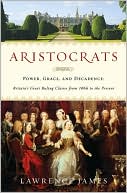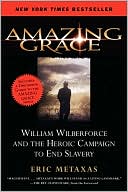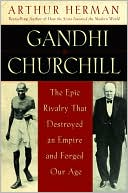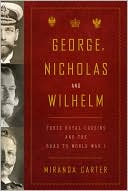Aristocrats: Power, Grace, and Decadence - Britain's Great Ruling Classes from 1066 to the Present
Search in google:
Aristocracy means “rule by the best.” For nine hundred years, the British aristocracy considered itself ideally qualified to rule others, make laws, and guide the nation. Its virtues lay in its collective wisdom, its attachment to chivalric codes, and its sense of public duty. It evolved from a medieval warrior caste into a self-assured and sophisticated elite, which made itself the champion of popular liberty: It forced King John to sign the Magna Carta and later used its power and wealth to depose a succession of tyrannical kings from Richard II to James II. Britain’s liberties and constitution were the result of aristocratic bloody-mindedness and courage.Aristocrats traces the history of this remarkable supremacy. It is a story of civil wars, conquests, intrigue, chicanery, and extremes of selflessness and greed. The aristocracy survived and, in the age of the great house and the Grand Tour, governed the first industrial nation while a knot of noblemen ruled its growing empire. Under pressure from below, this political power was slowly relinquished and then shared. Yet democratic Britain retained its aristocracy: Churchill, himself the grandson of a duke, presided over a wartime cabinet that contained six hereditary peers.Lawrence James illuminates the culture of this singular caste, shows how its infatuation with classical art has forged England’s heritage, how its love of sport has shaped the nation’s pastimes and values, and how its scandals have entertained its public.Impeccably researched, balanced, and brilliantly told, Aristocrats is an enthralling story of survival, a stunning history of wealth, power, and influence. Kirkus Reviews A broad narrative history of British wealth and opulence since the Norman Conquest. James (The Middle Class: A History) effectively digests an entire millennium of British aristocracy, from the cult of chivalry to the creaking irrelevance of peers hanging on by their gilded toenails in today's House of Lords. The word "Great" in the title gives a notion of where the author stands: "Who or what will replace these men and women?" he writes. "The extinction of the Lords would create a vacuum in public life and a dangerous one." They have served, above all, as a check on the sovereign's power, strictures clearly set out in 1215 in the Magna Carta, which safeguarded inalienable rights and protected "freemen" from excessive, arbitrary taxation. The contract held the king to account, and a bicameral parliament ensued, containing an inherited House of Lords and elected members in the House of Commons. With myriad examples, James traces how the "great men of the realm," namely aristocrats, would invoke that right to check the king, especially during the civil and religious wars. The creation of the Whigs, rebellious hotheads, and Tories, submissive to authority, occurred at this 17th-century juncture. But the power of the aristocrats, resting on landownership before the advent of the Industrial Revolution, was undergirded by the approval of the masses, who might also rise up (as in the Peasants' Revolt of 1381), or ape their masters, as demonstrated by the mores of the growing middle class. Most important, the aristocrats created a cultural legacy of grand homes, taste, fashion, art and sports. James attends to all the necessary historical strands, some of which American readers may find difficult to swallow. Still, the author provides a helpful chronicle of the traditions we hailed from and happily rebelled against.








